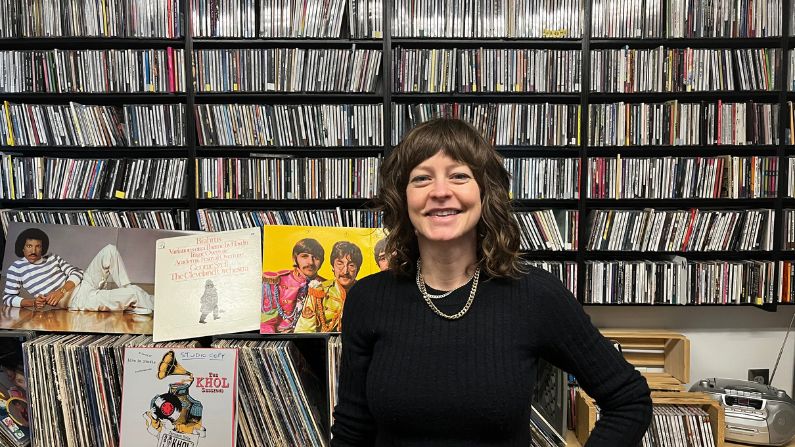During times of doubt, uncertainty and general malaise, music therapy has the power to provide relief and clarity. The pandemic in particular has resulted in many people experiencing exponential stress and burnout, especially those working in the healthcare sector.
Board-certified music therapist Hilary Camino received an American Rescue Plan Act (ARPA) grant from the Wyoming Arts Council to use therapeutic songwriting to help local healthcare staff process work stressors and bolster their mental health. Since then, the passage of time has allowed those healthcare workers an opportunity to reflect on their experiences and write a song about it. The songs were recorded with Aaron Davis at his Three Hearted Studio in Hoback and were released on Jan. 6.
Camino joined us recently in the KHOL studio to discuss the project and preview a couple of the completed songs.
The following interview transcript has been edited for clarity and brevity. This conversation was recorded on Tuesday, Jan. 17.
JACK CATLIN/KHOL: For this project, you worked with staff at St John’s Health to heal through the creative and collaborative process of therapeutic songwriting. What stood out to you most from these healthcare professionals when working with them so closely on the project?
HILARY CAMINO: Well, first of all, it was amazing to me how many of our healthcare staff were musical, and that’s kind of Jackson in itself. I’m always finding people who are musicians and it’s always amazing to me. And I really targeted musical staff for this project because I wanted to get people in the room first of all. But then I wanted to nurture that side of them, their individuality. And so that was amazing to see.
And it was also really cool to see how much people opened up in our sessions because it can be pretty vulnerable, you know, to be around your coworkers and be open and express yourself musically. But I was really amazed at how easily they were able to do that. And it’s cool because all the songs are very different musically and lyrically, but one of the themes that I saw coming through all of the groups was this “Why?” You know, why are they in health care? Why did they get into it in the first place, and why did they continue to work in this stressful environment?
A lot of them talked about the difference they make in other people’s lives and in their community. But we also talked about these moments that they have with their patients that are so profound that they connect with their patients on this really deep level that it kind of changes their whole perspective, not just their perspective at work, but their life and their core values. Like, “This is why I’m a human on this earth is to give back in this way.” And that really propels them forward and wants them to be a part of that and continue to work in health care.
KHOL: You’ve said that you’re very process driven and music therapy in this project challenged you to be both process and product driven to create a recording with staff that honors the work they’ve done. Can you expand on that for us?
CAMINO: Music therapy is really process driven in that you are accomplishing goals in the process of making music. So I’m having someone play along and playing music with me. Like I said earlier, the example of someone regaining strength on their right side or left side, you want them to use that left side to play the drum. That’s the goal, is engaging their body. It’s not necessarily me bringing a drum to someone and saying, “Okay, we’re going to learn how to play this drum so that you can have a performance and have that product.” So it’s kind of different from what a musician or a teacher does. Like, I’m a musician and I practice toward the product, I practice toward the performance, and that’s the end goal for music therapy. It’s different because it’s all process driven.
And so for me in this project, I really needed to look at it in a different way because the product was important here. It was important that we created a solid recording so that the staff who were involved in this process could continue to evolve and look back and reflect on those recordings. These recordings are like artifacts that you can look back on and reflect on, and your process continues to grow as you grow. I wanted them to feel powerful and proud of what they’ve created and also what we’re doing here today, which is engaging with the community so the community can empathize with the health care workers experience. And if we have a crummy recording, we’re not really going to engage and be able to connect with people in that way. And so it was important that we had a solid, polished recording so that we could reach the community having this conversation.
Listen above for KHOL’s full conversation with St. John’s Living Center’s Music Therapist Hilary Camino.





